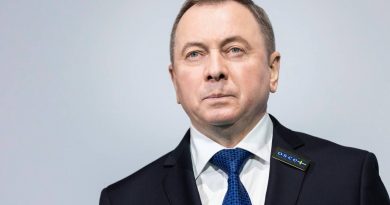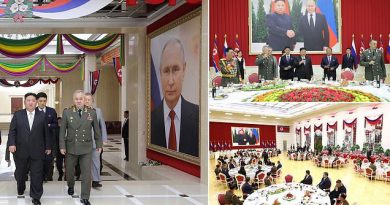Law firm at the centre of Pandora Papers helped global rich hide billions
HONG KONG (BLOOMBERG) – Two decades ago, Mr Jaime Aleman was looking to re-establish Panama’s reputation as a stable business centre following the United States’ 1989 invasion.
So, the Duke-educated attorney brought together heads of the country’s top law firms to back legislation inspired by Liechtenstein’s friendly rules on private foundations.
The story, as told by Mr Aleman in his autobiography, Honesty Is Priceless, was the beginning of an offshore-entity boom, in which world leaders, celebrities and more used hundreds of thousands of shell companies in Panama to hide their assets and take advantage of accounting and tax loopholes.
Now, his law firm – Aleman, Cordero, Galindo & Lee, or Alcogal – is at the centre of an investigation by the International Consortium of Investigative Journalists (ICIJ) for creating thousands of offshore companies that stashed money in tax havens for politicians and public figures.
In sheer size, the leak of those financial records, known as the Pandora Papers, eclipses that of the Panama Papers in 2016.
“Over the past three decades, Alcogal has become a magnet for the rich and powerful from Latin America and beyond seeking to hide wealth offshore,” the report said. “The firm acted as corporate middleman for more than 160 politicians and public officials.”
The law firm’s clients included Jordanian King Abdullah II, former presidents of Panama, the president of Ecuador and a presidential candidate in Honduras, according to the report.
Almost half of the politicians whose names appear in the leaked records and nearly two million of the 11.9 million documents in the Pandora Papers were tied to Alcogal.
In total, ICIJ tallied 14,000 entities in Belize, the British Virgin Islands, Panama and other tax havens created with Alcogal’s support as part of efforts to hide money away from public scrutiny for about 15,000 clients over 25 years.
Alcogal said in a letter to ICIJ that company incorporation is only one aspect of its legal services and that it operates in “full compliance with all applicable requirements in every jurisdiction in which we operate”.
The firm “performs enhanced due diligence on a client who is determined to be a high-risk customer, regardless of the nature of the relationship or service”, it said. Alcogal did not reply to a request for additional comment.
Co-founded in the 1980s by Aleman, a former Panamanian ambassador to Washington, DC, the firm worked with figures from some of the biggest corruption cases in recent history, including the so-called Carwash scandal that involved Brazil construction giant Odebrecht, the report said.
The report found that Alcogal set up more than 200 shell companies in Panama and other jurisdictions for Banca Privada d’Andorra, a bank based in a European principality between France and Spain, which the US government blacklisted in 2015 for being a “primary money-laundering concern”.
Alcogal is just one player in a larger industry. Mr Aleman, 71, said in his autobiography that he helped create Panama’s law on private foundations along with other firms, including Mossack Fonseca, which was at the centre of the Panama Papers.
That firm closed in 2018 after it faced raids and arrests as part of the Carwash scandal.
Mr Aleman’s book also mentions Morgan & Morgan, as well as Icaza, Gonzalez-Ruiz & Aleman and Arias, Fabrega & Fabrega as part of the group that shaped Panama’s foundation law in the 1990s.
But they are not necessarily the biggest players in the space. Those Panamanian firms are not in the top ranks of Chambers and Partner’s list of the global offshore law firms, which includes Maples and Walkers in the Cayman Islands, Harneys in the British Virgin Islands, Mourant in Jersey and Appleby in Bermuda.
That may be why Panama feels like it is being picked on. Former president Ricardo Martinelli, who was named in the ICIJ report because of Alcogal shell companies linked to two of his sons, tweeted that the ICIJ report aimed to “destroy the country”.
His sons were held in Guatemala last year after facing US indictments for their alleged roles in the bribery case involving Odebrecht. A statement from the Panamanian president’s office says the government is working to “counter negative repercussions” of the leak.
“It’s our duty to defend the interests of the nation and fight so that the name of the country isn’t associated with activities that we repudiate,” said President Laurentino Cortizo Cohen.
Join ST’s Telegram channel here and get the latest breaking news delivered to you.
Source: Read Full Article


